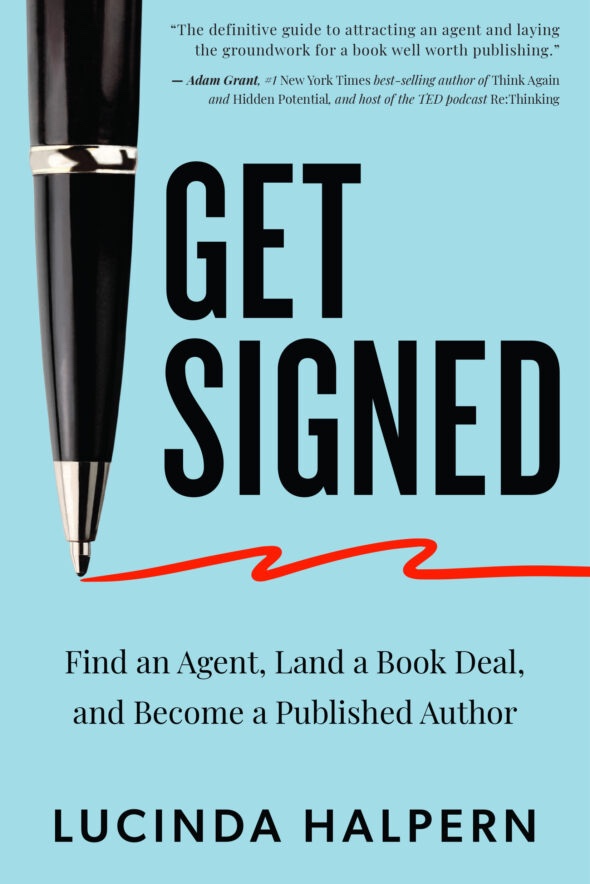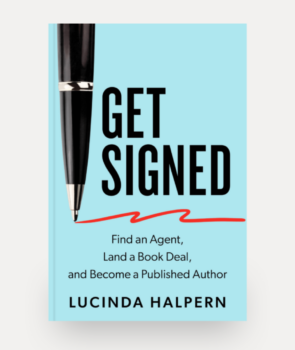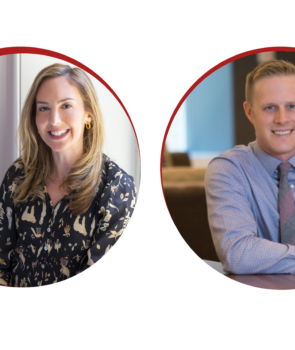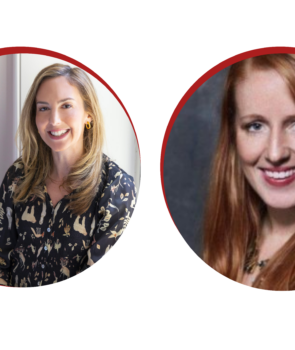Search
Lucinda Halpern and Richelle Fredson Talk Book Publishing
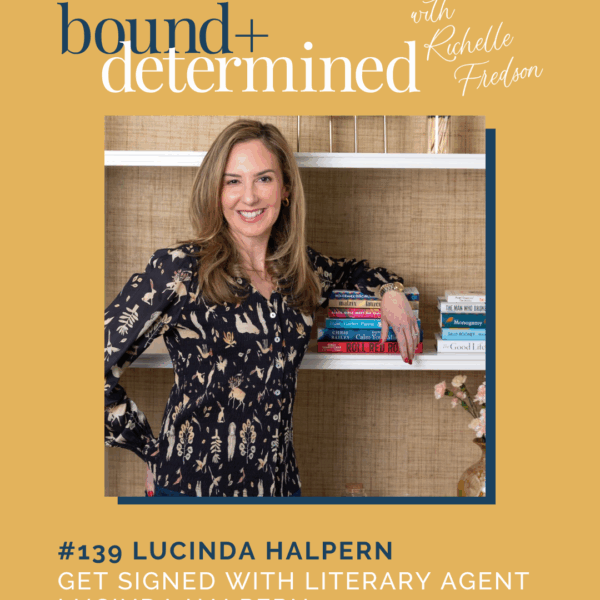 One of the things I love most about my work is collaborating with people who are just as passionate about book publishing as I am. Recently, I joined Book Proposal Coach and Publishing Consultant Richelle Fredson on her podcast Bound & Determined for an unfiltered conversation about the book business—from pitching and platform to intuition and identity. It was a full-circle moment, as Richelle and I go way back to our days at Hay House, where she led PR and marketing and supported some of the titles I’d sold.
One of the things I love most about my work is collaborating with people who are just as passionate about book publishing as I am. Recently, I joined Book Proposal Coach and Publishing Consultant Richelle Fredson on her podcast Bound & Determined for an unfiltered conversation about the book business—from pitching and platform to intuition and identity. It was a full-circle moment, as Richelle and I go way back to our days at Hay House, where she led PR and marketing and supported some of the titles I’d sold.
Here are a few key themes that emerged from our conversation—insights that I believe every aspiring author should hear.
From Publicist to Agent: The Superpower of a PR Background
My path into publishing wasn’t linear—few are. I started out as a publicist at HarperCollins, not because it was my plan, but because that’s where the opportunity opened. I quickly learned that my job was to find a way to get genuinely excited about a book—and convey that excitement to the world.
That skill, I later realized, became one of my greatest strengths as a literary agent. Having a marketing and publicity lens makes a pitch tighter, juicier, and more urgent. It’s a background I now consider a superpower. When Richelle and I discussed our similar starts, we both agreed: the ability to identify a strong hook and sell it is what makes a book proposal shine.
Why the Agent-Author Relationship Is Changing
Gone are the days when agents simply sold the book and disappeared until contract renewal time. Today, authors want a partner—someone who can guide, coach, and collaborate throughout the publishing journey.
I’ve built Lucinda Literary on that very principle. Nurturing authors through not just the deal, but also the development and positioning of their ideas, is core to what we do. Richelle and I both see this shift happening across the industry, especially among agents who bring a diverse skill set to the table. The result? More strategic books and more empowered authors.
Memoir Isn’t Always the Message
One of the most common misconceptions I see among first-time authors is the belief that telling your story means you have to write a memoir. But that’s not always the best path forward.
Often, we help authors explore whether their personal story could serve a greater purpose—perhaps as a prescriptive or advice-driven book. A hybrid approach that blends story with utility tends to resonate more deeply with readers and publishers. As I often say, “You’re not writing for yourself—it’s not a diary entry. You’re writing to serve your audience.”
The Value of Intuition—and the Power of the Pivot
There’s a part of this process that isn’t always easy to explain: the intuitive piece. Whether it’s spotting the “it factor” in a pitch letter or sensing when a proposal isn’t quite hitting the mark, intuition plays a bigger role than many realize.
Throughout the coaching work we do at Lucinda Literary, I see authors experience breakthrough moments—times when they suddenly realize, “This isn’t the book I’m meant to write.” That level of clarity only comes when you’re willing to do the work, stay open, and listen to your inner knowing.
Of course, once you’re working with an agent (and wearing my agent hat, I’ll say this firmly), that exploration should be complete. You need to be fully dialed in on the right concept. But before that? The pivot is part of the process.
Writing a Book Will Change How You Show Up
Writing my book Get Signed—which began as a self-publishing project and later got picked up by Hay House—was one of the hardest and most rewarding experiences of my career. I had to tear it down and rebuild it more than once. When my editor stepped in and said, “We’re rewriting this,” I had to embrace it as a gift—and a serious challenge.
What I realized through that process is something I now see in every author I work with. Writing a book forces you to simplify and sharpen your ideas. It pushes you to distill your expertise into something clear, accessible, and powerful. And that changes how you teach, how you speak, and how you show up in the world.
Credentials Matter—And You Probably Have More Than You Think
One of the first things I look for in a pitch letter today is credentials. In traditional publishing, that’s what editors want to know: Why you? Why now?
But credentials don’t just mean degrees or media appearances. I look at three types:
-
Traditional (academic, institutional, or professional achievements)
-
Contemporary (audience, visibility, platform)
-
Lived experience (personal transformation or unique insight)
Most authors underestimate how much they bring to the table. It’s my job to help them see the full picture—and to help them build a proposal that proves their authority, clarity, and readiness.
If you’re at the beginning of your publishing journey, remember this: the process isn’t meant to be perfect or linear. It’s meant to stretch you, challenge you, and ultimately reveal the book only you can write.
– Lucinda
🎧 Listen to the full podcast episode here:
Bound & Determined: Get Signed with Literary Agent Lucinda Halpern



